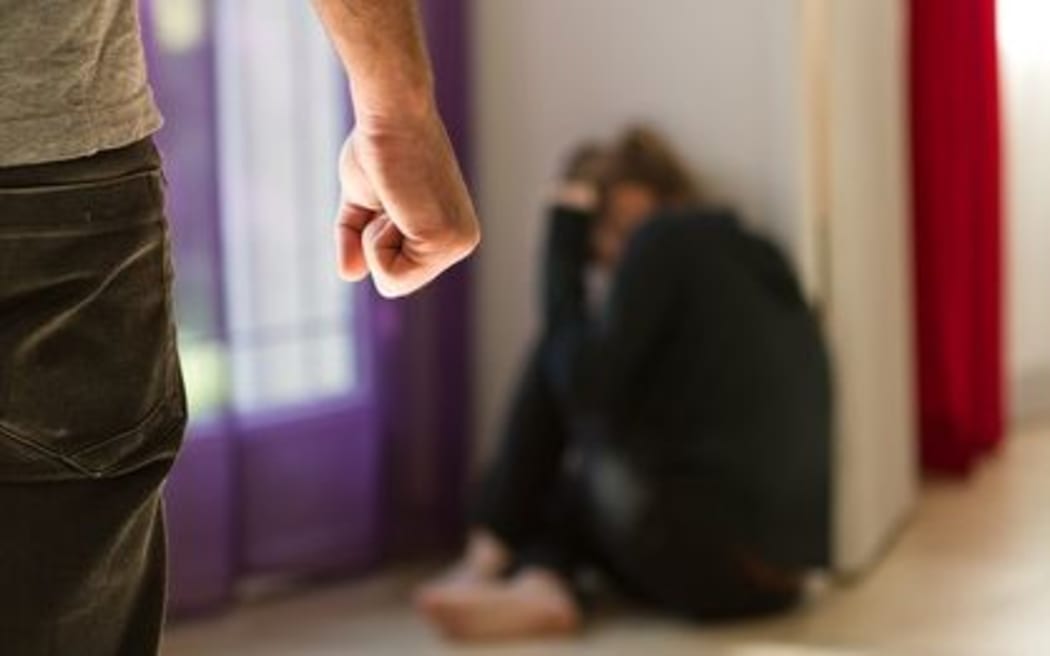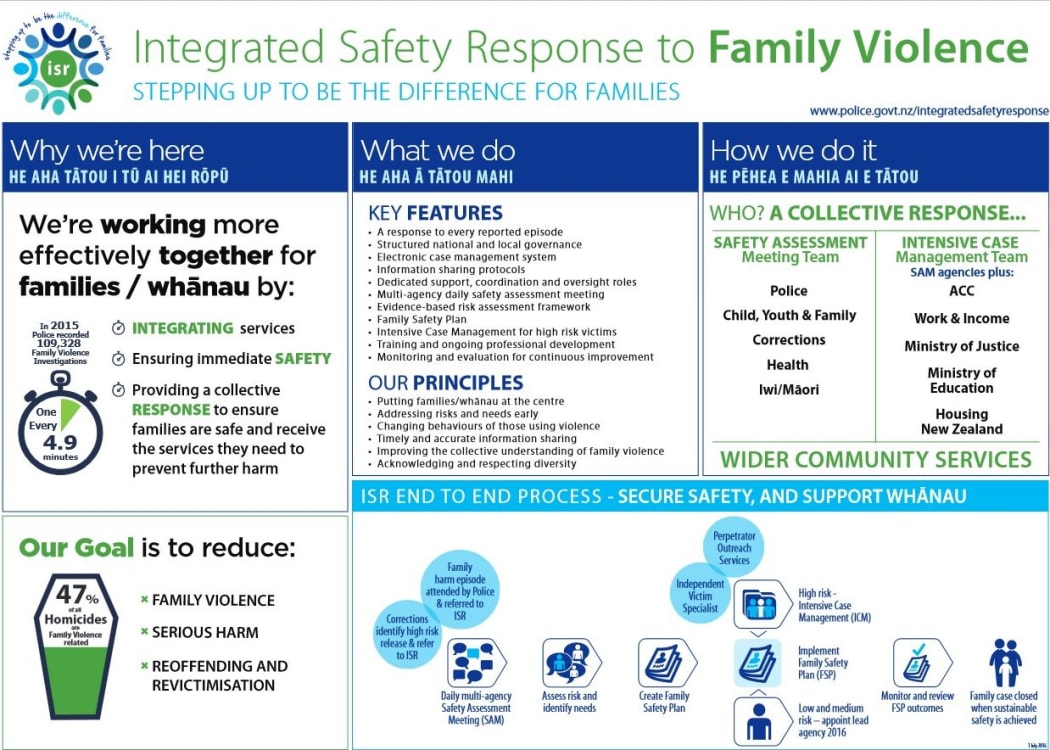A police-led programme to tackle domestic violence has drawn up thousands of safety plans for at-risk families but appears to be actually helping in only a very small number of cases.

Photo: 123rf
Launched under the previous government with a projected cost of $38 million*, Integrated Safety Response is a three-year pilot that's been running in Waikato and Christchurch since 2016.
But documents released under the Official Information Act show while the system is good at drafting plans, it's struggling to provide practical assistance to those caught up in family violence.
What is ISR?
It's a police-led programme that works with individual families to ensure victims get the support they need to stay safe and perpetrators get the help they need to stop hurting their partners or children.
There's a long list of about a dozen agencies involved including Oranga Tamariki, Corrections, Health, local DHBs, Justice, Education, Social Development, ACC, specialist family non-violence organisations, like Women's Refuge and services to support Māori.
Two pilots were launched in 2016, the first in Canterbury in July and the second in the Waikato in October.

Photo: Screenshot / NZ Police
Under the scheme, once there's been a notification to the police about violence the family must get a visit within 24 hours, those cases classed as medium risk get a visit within 72 hours, while low risk ones get a phone call.
This is all done through something called a family safety plan - this assigns tasks and interventions to government and non-government agencies which help the family.
A 'task' is a short term measure like referring a victim or attacker to a programme or visiting a family to get information.
An 'intervention' is a longer term solution - like attending a stopping violence programme.
Documents obtained by RNZ show the projected cost of running the pilot over three years is about $40 million.
That money has been spent on a director and staff to co-ordinate the programme as well as staff to help families.
The budget includes scope for trialling new ideas like proximity alarms, IT support, other administrative overheads such as rent, and a final evaluation of the pilot.
Are there shortcomings?
The pilots deal with family violence cases referred to the police, as well as some high risk offenders who have been released from jail.
Yet three quarters of the domestic violence incidents, don't go through the police, so despite the cost, it's only dealing with 25 percent of cases.
According to an evaluation done in August last year, ISR had generated almost 10,000 family safety plans, involving just under 30,000 people.
Read the full report: Evaluation of the family violence Integrated Safety Response pilot
But the most common type of task was to 'make contact' with the family and assess their safety and that was most commonly assigned to an NGO.
And only 2 percent of the plans resulted in an intervention (a longer term solution).
The report said it didn't know if this was because agencies were making referrals but not recording them or simply not referring people.
One of the groups involved in the programme said the referrals weren't being made, because there were hardly any services to refer the perpetrators to and there were not enough male advocates to work with men.
Those working in the system say until that improves reoffending rates won't reduce and they question how sustainable the project is given how expensive it is.
It's not clear whether the 2 percent intervention rate relates to victims or perpetrators nor whether it relates to those at high or medium risk.
RNZ was referred to the Minister of Police, MSD, Justice and then police again about this. The police minister, Stuart Nash, declined to be interviewed saying he hadn't been briefed on the programme.
In Christchurch, the increased funding has also increased competition amongst NGOs, meaning they are less likely to collaborate.
However, a report released in August last year, found victims were feeling safer, communication between government agencies had improved and agencies were more accountable.
RNZ understands the pilot will continue through until 2019.
* This article was originally published with a figure of $60 million, but the true figure is $38 million. The error occurred because of incorrect information provided by the Ministry of Justice.


